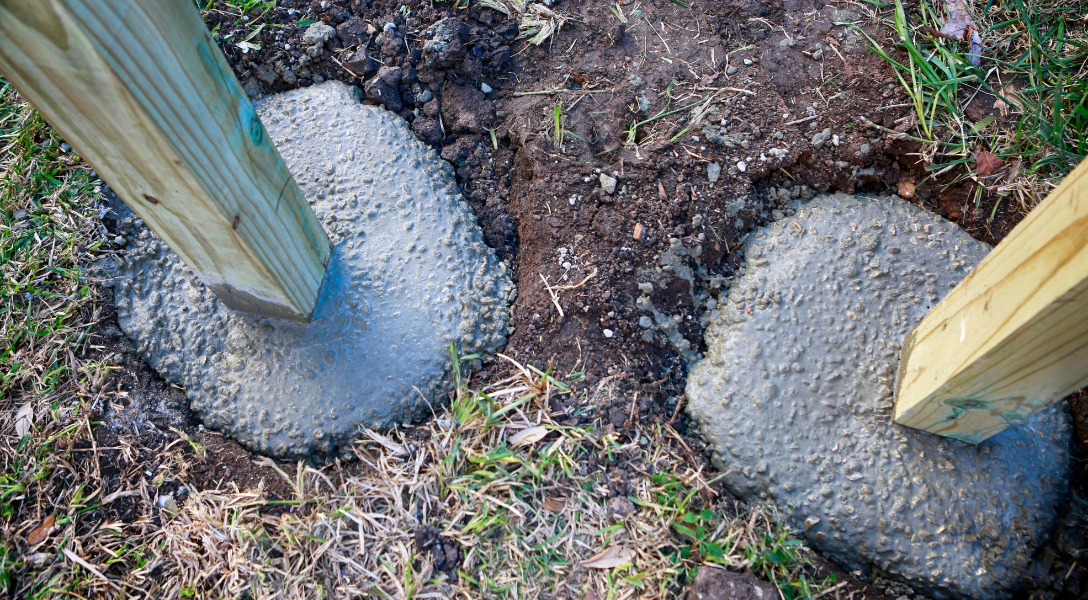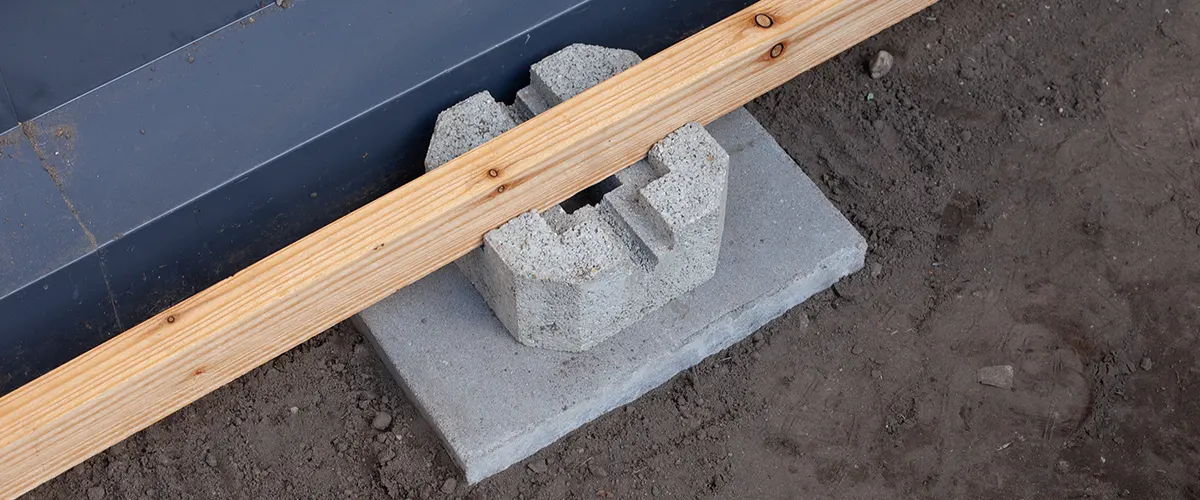A Comprehensive Overview to Deck Footings: Professional Tips for Solid Foundations
Wiki Article
The Relevance of Deck Footing: Trick Considerations for a Secure Deck

Importance of Proper Deck Ground
The appropriate footing for a deck is crucial for guaranteeing security and long life. When developing a deck, it is necessary to pay attention to the structure or footing upon which it will certainly be created. A well-designed and correctly set up footing provides a solid base that supports the weight of the deck and disperses it evenly to the ground.Among the key reasons that appropriate deck footing is essential is to make certain security. A deck that is not safely secured to a secure footing can sag or move over time, bring about possible safety and security dangers and pricey repair work. By providing a strong base, the ground helps to avoid these concerns, guaranteeing that the deck remains level and secure.
In addition, proper deck footing likewise contributes to the durability of the structure. A steady ground helps to reduce activity and settling, which can trigger stress and anxiety on the deck's products and result in early damage. By developing a strong structure, the deck is much better able to hold up against the elements and preserve its structural honesty with time.
Elements Influencing Deck Stability
Elements affecting deck security include the dirt structure, environment conditions, and deck design. These elements play a critical role in identifying the total security and durability of a deck framework.Sandy or fertile soil may not provide enough support for a deck, while clay or rocky dirt can offer better stability. Performing a dirt analysis before building and construction can help establish the suitability of the soil for the deck ground.
Climate problems also affect deck stability (Deck Footings). Extreme climate condition such as high winds, heavy rains, and freezing temperature levels can put considerable stress on a deck framework. Adequate reinforcement and appropriate style factors to consider, such as utilizing appropriate bolts and materials, can help minimize the influence of these weather condition problems and guarantee the deck stays steady over time
Deck design is one more essential variable impacting stability. The layout needs to take into consideration the awaited load, the spacing and dimension of the footings, and the general architectural honesty. A deck that is not correctly made can sag, move, or perhaps collapse, compromising the security of those utilizing the deck.
Picking the Right Footing Type
When considering the security of a deck, it is necessary to thoroughly select the ideal type of ground. The kind of footing you select will certainly depend on numerous factors such as the dirt problems, environment, and the dimension and style of your deck. The two primary kinds of grounds frequently utilized for decks are concrete footings and helical stack footings.
Helical heap footings, on the other hand, are an even more cutting-edge and flexible option. These footings are screwed right into the ground making use of a hydraulic electric motor, offering instantaneous security and load-bearing capacity. Helical heap grounds are optimal for decks improved sloping or unequal surface, as they can be installed at various midsts to accommodate the ground conditions. They are additionally a fantastic alternative for decks that require to be constructed in locations with high water tables or on delicate soil types.
Correct Ground Setup Methods
Correctly mounting the deck ground is essential for making sure the security and long life of the deck structure. When it involves installing deck grounds, there are several vital strategies that need to be followed to guarantee a solid foundation.First of all, it is necessary to begin with a well-prepared site - Deck Footings. This involves getting rid of the area of any type of plants or debris and making sure that the ground is degree. A level site will certainly help prevent any unequal settling of the footings gradually
Next, the footings should be dug to the proper depth. The depth will depend upon aspects such as the soil type and regional building ordinance. Generally, footings need to be dug listed below the frost line to stop frost heave and make sure stability.
After excavating the openings, it is critical to correctly compact the soil at the base. This can be done using a hand meddle or a mechanical compactor. Compacting the soil will offer a firm base for the footing to rest on.
When the footings remain in area, they should be full of concrete. The concrete needs to be mixed according to the supplier's instructions and put into the holes. It is very important to ensure that the concrete totally fills up the holes and is level with the surrounding ground.
Lastly, the concrete needs to be enabled to heal for the recommended amount of time prior to any type of weight or lots is positioned on the deck. This will certainly ensure that the grounds have fully solidified and prepare to support the deck structure.
Regular Maintenance for Durable Deck Security
Regular inspection of the deck ground is critical. Making sure that the grounds are safe and cost-free from any type of signs of settlement or shifting will aid maintain the total security of the deck. By continually carrying out these upkeep techniques, deck owners can make sure that their decks remain secure and steady for years to come.Verdict
In verdict, proper deck ground is critical for keeping a stable deck. Elements such as dirt type, deck, and environment lots need to directory be taken right into consideration when picking the appropriate ground type. Complying with correct installment methods and regularly preserving the deck will guarantee its long-lasting stability. By resolving these essential factors to consider, house owners can make certain the safety and security and long life of their deck structures.The value of deck ground can not be overstated, as it gives the foundation upon which the whole deck framework is developed. A deck that is not appropriately designed can droop, move, or also collapse, jeopardizing the security of those using the deck.
The two primary kinds of footings frequently used for decks are concrete grounds and recommended you read helical heap footings.
By constantly implementing these upkeep methods, deck owners can ensure that their decks stay safe and steady for years to come.
In conclusion, appropriate deck footing is important for maintaining a secure deck.
Report this wiki page